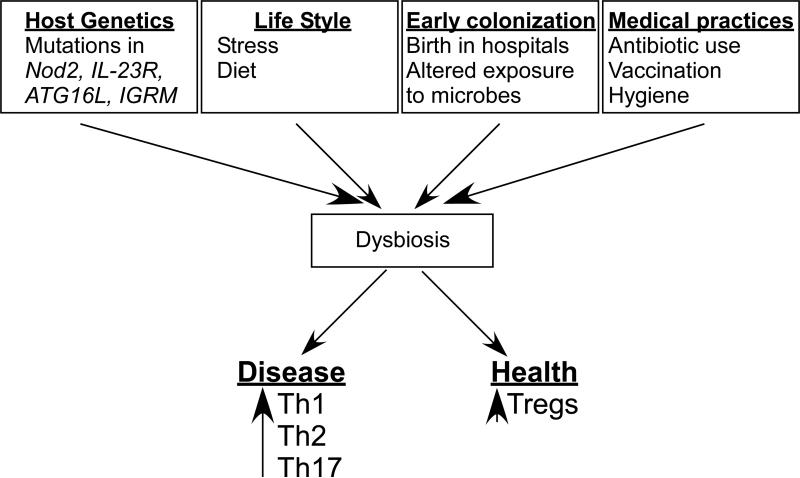Figure 3. Proposed causes of Dysbiosis.
We propose the notion that the composition of the microbiota can shape a healthy immune response or predispose to disease. Multiple factors can contribute to a dysbiotic state including host genetics, medical practices, life style, and exposure. a| Host genetics can potentially influence dysbiosis in multiple ways. Genome wide association studies of IBD patients have revealed polymorphisms in immune-related genes. An individual lacking genetic regulatory mechanisms or overactive pro-inflammatory pathways will have an intestinal environment marked by unchecked inflammation. Studies have demonstrated the ability of inflammation alone to influence the composition of the microbiota, potentially in favor of pathobionts. Alternatively, it is possible that genetics of the host can ‘select’ or exclude the colonization of particular organisms. This selection can be either active (as would be the case of an organism recognizing a particular receptor on the host) or passive (the host environment is more conducive to fostering the growth of select organisms). ‘Selection’ of pathobionts by the host could tip the balance in favor of inflammation. b| The food we consume and even the day-to-day stress95 represent aspects of life style that have the potential to influence the microbiota. c| Hospitals represent a sterile environment in which infants are born. While the sterility protects from dangerous pathogens, it also has the potential to prevent early exposure to health-promoting bacteria. d| The advent of antibiotics represents a major medical breakthrough; however, antibiotics do not have the capacity to distinguish between pathogenic or symbiotic microorganism s and may adversely alter the microbiota.

